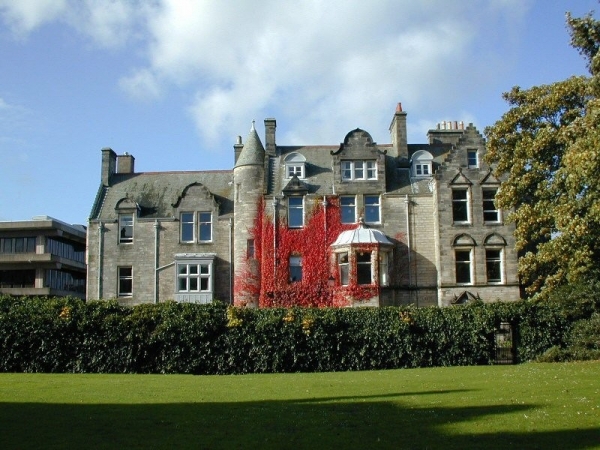https://www.st-andrews.ac.uk
Description
The University of St Andrews was Scotland’s first university and only the third to be founded in the English-speaking world. It sits in the heart of the east coast town of the same name, in the Kingdom of Fife.
At a time when university status could only be conferred by the Pope, the then Bishop of St Andrews, Henry Wardlaw, sought a blessing from Pope Benedict XIII to establish a national university (most Scottish students in the middle ages were forced out of Oxford and Cambridge as a result of the Wars of Independence with England).
The papal blessing was granted in 1413, allowing the St Andrews school of higher studies, on the site of a former monastery, the authority to confer degrees.
Over 900 degree courses are now offered at the university, organised across four faculties: Arts, Divinity, Medicine, and Science.
About a third of its 8,000 students come from Scotland while just under half are international, hailing from 120 different countries in total, and the university has some of the lowest drop-out rates in the country.
In 1892, the institution accepted its first women students, at a time when the majority of British universities still did not.
The town of St Andrews is small – just 17,000 permanent residents live among protected conservation areas, meaning university staff along with 7,500 students makes up about half its population. The university itself refers to the ‘thee people rule’. Supposedly a student walking down the street in St Andrews is bound to know at least one in every three people they pass.
The institution even has its own wind farm, making St Andrews self-sufficient for electrical energy.
Prominent St Andrew’s alumni include politician Alex Salmond, the inventor of logarithms John Napier, Prince William Duke of Cambridge and Catherine (née Middleton) Duchess of Cambridge.
The University of St Andrews was Scotland’s first university and only the third to be founded in the English-speaking world. It sits in the heart of the east coast town of the same name, in the Kingdom of Fife.
At a time when university status could only be conferred by the Pope, the then Bishop of St Andrews, Henry Wardlaw, sought a blessing from Pope Benedict XIII to establish a national university (most Scottish students in the middle ages were forced out of Oxford and Cambridge as a result of the Wars of Independence with England).
The papal blessing was granted in 1413, allowing the St Andrews school of higher studies, on the site of a former monastery, the authority to confer degrees.
Over 900 degree courses are now offered at the university, organised across four faculties: Arts, Divinity, Medicine, and Science.
About a third of its 8,000 students come from Scotland while just under half are international, hailing from 120 different countries in total, and the university has some of the lowest drop-out rates in the country.
In 1892, the institution accepted its first women students, at a time when the majority of British universities still did not.
The town of St Andrews is small – just 17,000 permanent residents live among protected conservation areas, meaning university staff along with 7,500 students makes up about half its population. The university itself refers to the ‘thee people rule’. Supposedly a student walking down the street in St Andrews is bound to know at least one in every three people they pass.
The institution even has its own wind farm, making St Andrews self-sufficient for electrical energy.
Prominent St Andrew’s alumni include politician Alex Salmond, the inventor of logarithms John Napier, Prince William Duke of Cambridge and Catherine (née Middleton) Duchess of Cambridge.
Specific details
Location
College Gate, St. Andrews, Fife, KY16 9AJ, United Kingdom








 How to resolve AdBlock issue?
How to resolve AdBlock issue? 


Comments (9)